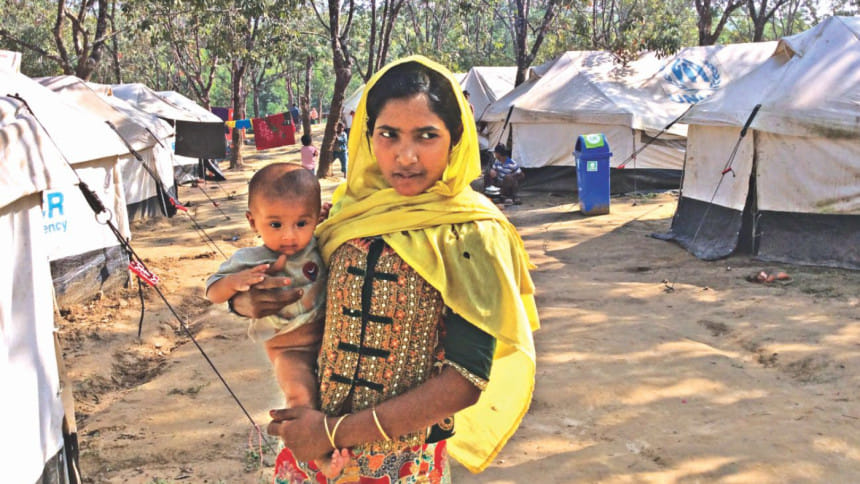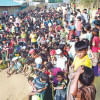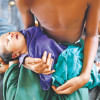Rohingyas keep coming

Rohingya refugees from Myanmar's Rakhine State are still crossing into Bangladesh though the two countries are expected to start the repatriation of the Rohingyas, who have already taken shelter here, in weeks.
On an average, four to five Rohingya families are entering Bangladesh through different border points every day, said aid workers.
The refugees said they had to leave home as they had been facing a severe food crisis. Locals loyal to the Myanmar army did not allow them to work or harvest their standing crops or even go to markets to buy essentials, they alleged.
Four such Rohingya families that crossed the border on Thursday, are now living in a transit camp set up by the UNHCR -- the UN refugee agency -- in the reserve forest area near Balukhali in Cox's Bazar.
"Now, they [the army] are not torching our homes or killing our people. They [the locals] just don't let us collect our crops from the field," one of the Rohingyas, Nur Fatema of Kuaichhang village in Rakhine State's Bhutidawng, told this newspaper at the camp yesterday.
“They also don't allow us to go the market. If the locals find any valuables from us, they take it away," said, Rehana Begum, another new arrival.
She said her fisherman husband, Abdul Zalil, was also not allowed to go to the sea to fish.
Nur Fatima said she and her brother Ali Zoha came to Bangladesh along with 13 others as they were facing food crisis in their village in Bhutidawng's Wamagna.
All the Rohingyas, who are coming to Bangladesh, are being brought to the transit camp for medical checkup and biometric registration, said an aid worker there.
“If they do not have any diseases, we send them to any of the Rohingya camps as per their wish. Usually, they want to go to their relatives or friends who are already here," said the worker, wishing not to be named.
Currently, the transit camp is accommodating some 200 Rohingyas of 50 families. All of them arrived last week.
Earlier, 56 refugees were shifted to Balukhali Rohingya camp from the camp yesterday morning, said another aid worker.
So far, the Bangladesh government has created a database of 923,000 Rohingyas, who have fled Myanmar to escape persecution in recent months. The database has their fingerprints and other necessary information. The refugees included 19,000 displaced orphans.
As per an arrangement reached between Dhaka and Naypyidaw on November 23, the repatriation of the Rohingyas must start within two months of the signing.
Under the arrangement, all Rohingyas who entered Bangladesh after October 9, 2016 would be sent back.
The two countries have already formed a joint committee, which will sit in the next 10 days, in this regard.

 For all latest news, follow The Daily Star's Google News channel.
For all latest news, follow The Daily Star's Google News channel. 








Comments